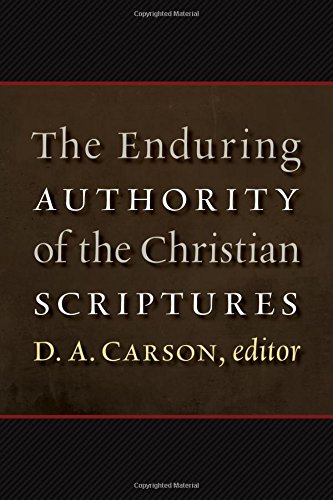A Brief Book Summary from Books At a Glance
Editor’s Note: Today we continue our series of “bonus” summaries covering all thirty-six chapters of the monumental volume, The Enduring Authority of the Christian Scriptures (D.A. Carson, ed.).
Chapter 28: The Idea of Inerrancy
by Paul Helm
(Summarized by Mark Coppenger)
Distinguished philosopher of religion, Paul Helm, deploys his analytical skills to perform an exacting operation on the notion of ‘biblical inerrancy.’ He distinguishes it from ‘infallibility,’ which brings into play the capacity of the reader to be steered appropriately, an epistemic and not just alethic concern. And he argues for a essential durability beyond that of, say, the phone book, which may get all the names and numbers right, but which is quickly out of date. He grounds inerrancy in the character of the author, God, and he rehearses the regular qualifiers, e.g., that inerrantists recognize genres and conventions; that not all verses are straightforward propositions with truth functions; that an accurate record of a false statement is still inerrant.
After demonstrating that he is well acquainted with “speech act theory,” spawned by British, ordinary-language philosophy, J.L. Austin, and after giving its distinctions (e.g., ‘perlocutionary’ and ‘performative utterance’) their due, he pushes back against those who argue that this conceptual scheme should supplant allegiance to a “propositional” approach to biblical authority. He warns against “overcontextualizing,” reminds us that the assertion is. . .
[To continue reading this summary, please see below....]The remainder of this article is premium content. Become a member to continue reading.
Already have an account? Sign In
